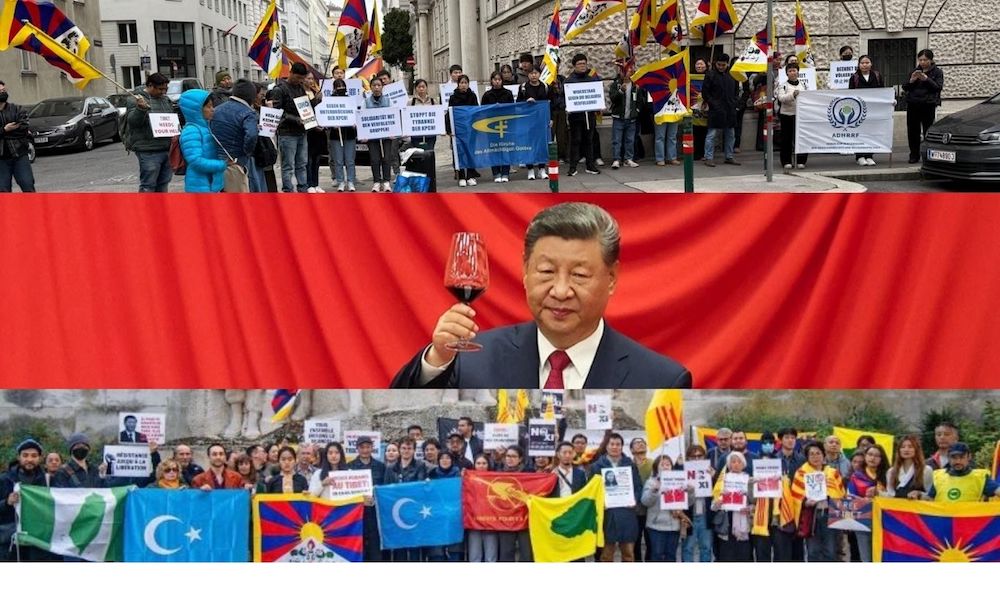by Tsewang Namgyal
“Ideas shape the course of history.” John Maynard Keynes
 A few years ago, I met a successful-looking Tibetan entrepreneur in Chengdu. He mentioned, with pride, that he owned and ran a hotel, indicating that he was creating jobs for Tibetans. I requested to see the hotel, as we can learn much from other people’s success. When I visited the hotel, I was saddened to see that it was another shady “massage” center. This made me further comprehend the problem of unemployment within the Tibetan community and its need of guidance. Before we start pointing fingers solely towards the Chinese government, let us review our current situation in exile.
A few years ago, I met a successful-looking Tibetan entrepreneur in Chengdu. He mentioned, with pride, that he owned and ran a hotel, indicating that he was creating jobs for Tibetans. I requested to see the hotel, as we can learn much from other people’s success. When I visited the hotel, I was saddened to see that it was another shady “massage” center. This made me further comprehend the problem of unemployment within the Tibetan community and its need of guidance. Before we start pointing fingers solely towards the Chinese government, let us review our current situation in exile.
Although I do not have studies backing up my opinions, I have heard many horror stories of young Tibetan ladies drawn into prostitution and young men’s lives being wasted by drug addiction. While we lament the destruction of Tibetans in Lhasa by alcohol, it is also us Tibetans who are selling alcohol to Indians in the streets of Delhi. Although we have less control over the situation in Tibet, we do not have the same excuses in exile. Clearly, we need the courage and ingenuity to weed out the problem of unemployment from our community through innovative solutions that do not also destroy our community in the process.
As refugees, one of our greatest strengths is our unity that has developed due to a common “enemy” in the form of the Chinese government. Using the “enemy” as motivation, we are in many ways better able to create the will to change. Here I would like to follow up on my earlier piece Our Fatal Flaw I with an additional thought. With a new Kalon Tripa and Chitue members in place in 2011 this is a unique opportunity for us to implement new strategies. I hope the below idea they would find useful.
There is a general assumption and increased discussion regarding the ‘fact’ that Tibetan culture in exile can be preserved through creating economic opportunities in the settlements. The belief is that this would make Tibetans want to live in the settlements. There is no doubt that there are some merits to this argument; however, we also need to look carefully at the drawbacks.
The key risk I see in this assumption is that we will be comprehensively limiting the growth opportunities of Tibetans–especially those of the younger generation. Personally, I had the opportunity to live in the settlements in South India when my father worked there for extended periods of time. It was one of the most memorable experiences of my life, and I would encourage all Tibetans to vacation there without hesitation. However, due to the location of the settlements and our small population, the opportunities we can create are very limited in scope. In the name of cultural preservation, I fear we may end up at the very best creating a Tibetan Disneyland.
I believe it is through competition, instead of protectionism, and engagement, instead of isolation, with India and the world, that will ultimately best allow us to preserve our culture. Our engagement will enable us to leverage the enormous resources that will become available to us. In the process, I believe we will be able to share the profound wisdom of our culture, and changing the world in the process.
Some years ago, I had an opportunity to assist in inviting His Holiness the Dalai Lama to our business school (see http://www.phayul.com/news/article.aspx?id=10739&t=1&c=1). Partly due to the influence of His Holiness, the school today is a pioneer in developing an Oath of Honor to “contribute to the creation of sustainable economic and social value.” If our culture can have a major influence in the “self-interested” world of business, one can only imagine what effect it could have on other fields.
In the United States there are two models we can learn from – Jewish and Amish. Personally, I find the Jewish model very attractive. The Jewish community has not only been able to preserve their culture but succeed in the areas of business, science, politics and art in the international arena. It is the Jewish community that has been one of our greatest supporters, and our relationship at an organizational and personal level continues to remain very deep. Let us continue to leverage it to our continual mutual benefit.
The tremendous growth opportunities in India have opened a unique path for Tibetans living in India. While we should create economic opportunities in the settlements, I believe we also need to create equal opportunities for Tibetans to join top Indian companies.
Business development ideas should not only focus on creating job opportunities in the settlements, but all through India and marketed towards Indians. For example, one idea would be to assist in the development of a feasibility study to create a chain of boutique, high-end Tibetan-themed hotels both in India’s major cities and the settlements. Success of such a venture could create solid jobs, training and experience for Tibetans. It would develop a broader and deeper market for our art and culture, and would be a great way to brand our products and introduce others to the unparalleled warmth of Tibetan hospitality. By creating such markets we will better able to protect our culture than just reacting to external forces.
There is no doubt that special attention must to be paid to the settlements whether farming, economic, education, health care, nursing homes and other areas. This is where the bulk of Tibetans in exile live. However, we need to continue to have a more balanced strategy. While we create opportunities there, we should also continue to encourage and support young Tibetans to make their mark in India and the world. Organizations like Empowering the Vision Project (“ENVISION”) are doing a fantastic job due to the work of TGIE, the organization’s staff and supporters. I sincerely hope that the current discussion’s focus on empowering the settlements will not come at the expenses of genuinely game changing efforts like ENVISION.
Finally, this piece was not written to criticize TGIE or the work of the many other excellent organizations working in the settlements. As a Tibetan who graduated from Tibetan Children Village, I still remain indebted after all these years to the compassion and efforts of our government employees, teachers, staff and many, many other unrecognized heroes. Through my beloved father’s long service for TGIE I know what sacrifices they make. However, I know that our elders tried to provide us the best modern education not to create a culture of “Yes Men,” but caring active individuals. They recognized that it is our failure to change and adapt that led us to our current unfavorable political and economic situation. I write these thoughts with nothing in my heart except gratitude to our elders for preserving our profound culture, and a resolute promise that we will continue our efforts in the spirit of their traditions.
The author is an MBA graduate (Beta Gamma Sigma Honor Society member) from the Thunderbird School of Global Management and works in the Investment Banking field in New York City. Tsewang is one of the Founding Board of Directors of Students for a Free Tibet, first Tibetan to officially enlist in the United States Military and served as the Executive Director of the Tibetan Community Center Project (NY) from 2007-2008. Tsewang currently serves on the Board of the Tibet Fund.
[OPINION-DISCLAIMER]









